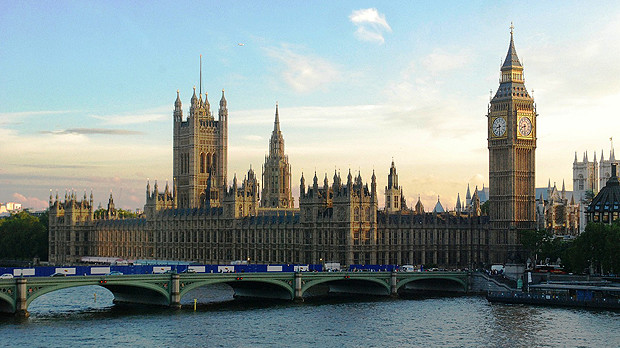SDGs 'not just for overseas'
In its latest report, the UK parliament's Environmental Audit Committee has warned that the government risks undermining new global development goals, following evidence that the UK has been seeking to limit their scope and ambition.

A view of the Houses of Parliament, home of the Environmental Audit Committee which has warned that the government risks undermining new global development goals (Photo: Skeeze, via pixabay)
The International Institute for Environment and Development (IIED) submitted evidence to the Environmental Audit Committee (EAC) that the government's position on the Sustainable Development Goals (SDGs) threatened the universal scope of the goals.
Tom Bigg, IIED head of partnerships, said: "Sustainability has to start at home if it is to work on a global scale. The UK government position seems to be that the SDGs are relevant predominantly for developing countries, when in fact they are just as important for the UK itself.
"The Prime Minister has called for the number of the goals to be reduced, but the current proposals, drawn up by an inter-governmental UN working group, reflect the complexity of this agenda. There is a risk that by reducing the overall number, the goals that will most affect the UK will be removed."
IIED said the goals must remain relevant to all countries, and be applied across the government, affecting domestic policies and international trade and financial impacts as well as foreign aid.
A more coherent approach would avoid the conflict currently very much in evidence in government department policies. In the last few weeks alone, the UK government has pledged £720 million to the Green Climate Fund, while George Osborne announced in his Autumn Statement a series of tax breaks for fossil fuel companies.
As a leading member of the Independent Research Forum on a Post-2015 Sustainable Development Agenda (IRF2015), IIED has been working internationally to provide critical support on the SDG proposals.
Bigg said: "Most government input to date has come from the Department for International Development (DFID), Department of Energy and Climate Change (DECC) and Department for Environment, Food and Rural Affairs (Defra). It seems that the SDGs are just as relevant for other departments such as the Treasury and the Department of Transport, just to name a few. Other Organisation for Economic Co-operation and Development (OECD) countries, such as France and Switzerland, are already thinking along these lines."
Policy coherence will be essential for the SDGs to succeed. This implies the need to rethink policies to make sure that they at least do not undermine foreign aid, on such areas as:
- Regulation of the financial system – including tax havens and shadow banking
- International trade and investment agreements (such as the Transatlantic Trade and Investment Partnership (TTIP) and the Comphrensive Economic and Trade Agreement (CETA)
- Foreign direct investment in land and natural resources (e.g. overseas fossil fuel subsidies), and
- Agricultural subsidies
Bigg added: "IIED warmly welcomes the strong guidance laid out in the EAC report on the UK's approach to the SDGs and hopes to see the government take on the clear and insightful recommendations made by a series of respected expert organisations.
"It is vital that the SDG process includes clear targets and measures of progress. IIED would like to see reporting from governments and big business made part of the agenda. People must be able to see that the SDGs are delivering."
The European Union (EU) will agree its negotiating position at the European Council meeting on 18-19 December and the biggest concern outlined in the EAC report – a concern shared by IIED – is the government's desire to cut down the amount of SDGs from 17 to 12.
If the UK does not respect the status of the goals when the EU meets, it could risk destabilising the agreements put in place by the UN Open Working Group on the Sustainable Development Goals.
- Read the EAC report



